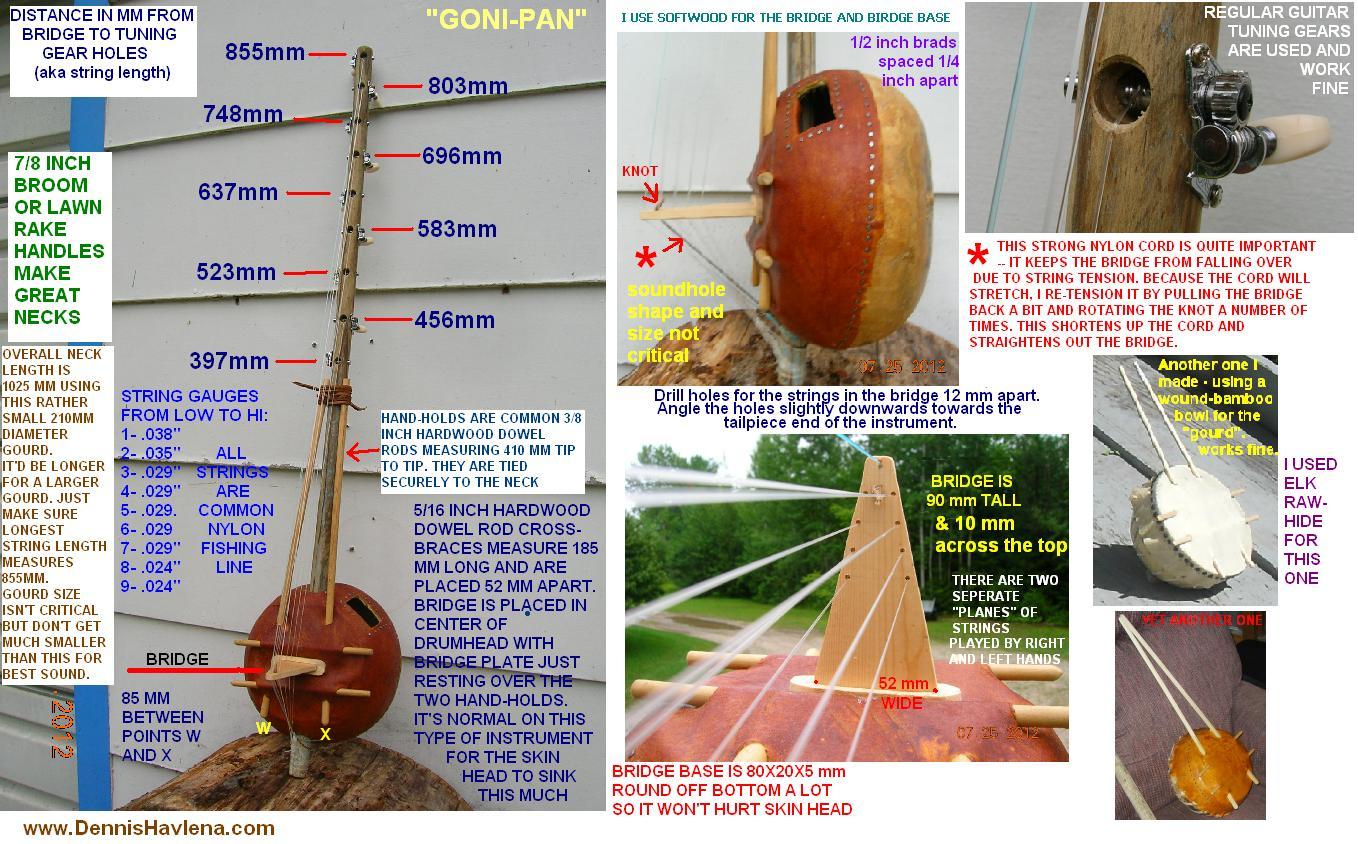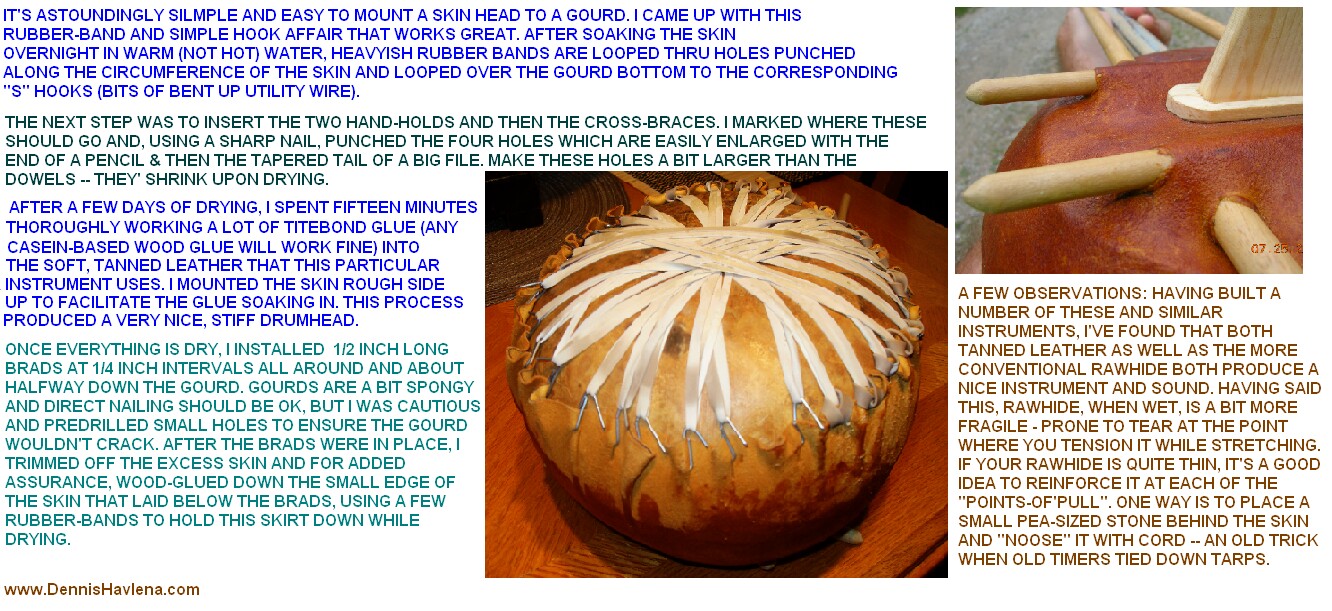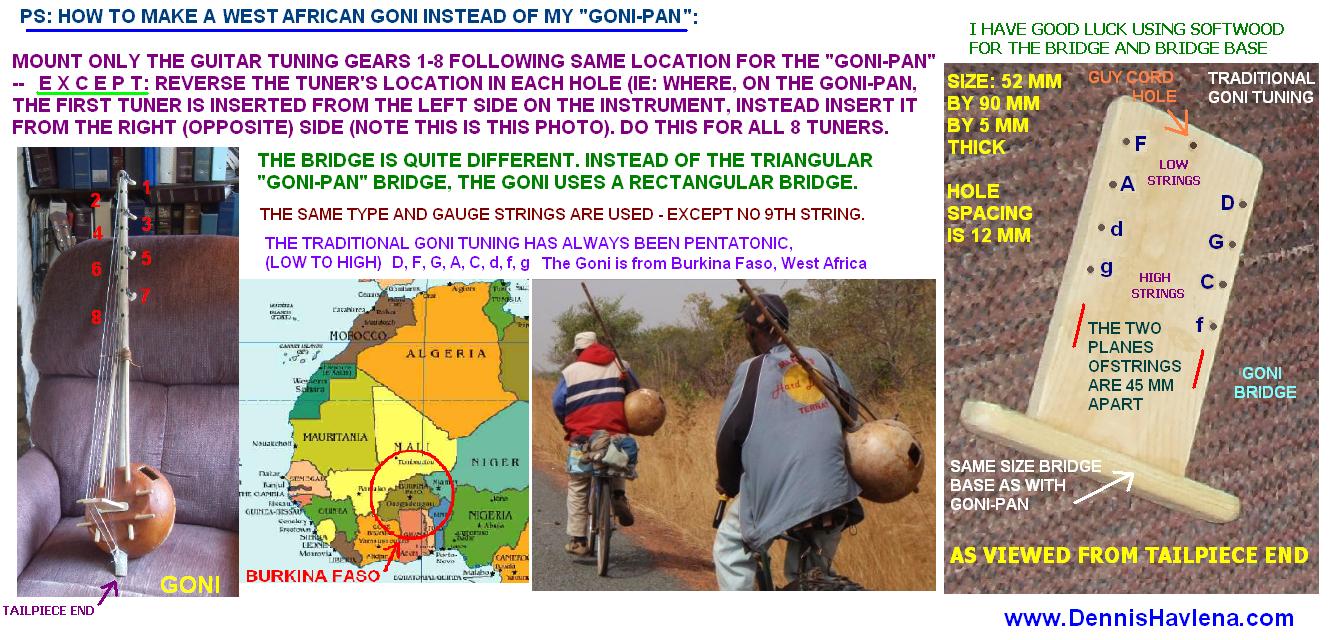
Click here to access
my webpage

Parts for making one:
- A hardwood lawn-rake handle ($4 locally) works PERFECTLY for the neck
- Just about any size larger (8" diameter and up) gourd (I used the bottom half
of a common "figure 8" shaped "bird-house" gourd).
Things besides gourds can be used too - see below.
- A small piece of just about any type leather - rawhide OR
tanned. See below
- 9 inexpensive guitar-type tuning gears (elderly.com - economy tuners)
- A few lengths of regular monofilament nylon fishing line
- Three hardware-store dowel rods
- A bottle of any kind of wood glue (Elmers, Titebond etc)
- A small package of 1/2" brads (or upholstery tacks)
- Small piece of 1/4" thick softwood for the bridge
With no frets, fretboard etc, absolutely nothing is fussy or critical.
This is not yet gourd season around northern Michigan, so I recently used the
bottom half of a a craft-store spiral-wound bamboo decorative "pot" instead of
a gourd. Worked perfectly as would large enough wooden salad bowls ETC. Use your
imagination - nothing fussy here (sound doesn't much care what it's resonator is!)
Leather:
While rawhide is supposedly the best, I've had great luck using soft, tanned leather
and once mounted (rough side up) thoroughly rubbing-in copious amounts of common wood
glue (which itself is an animal product). This stiffens up the soft tanned leather and
works fine for this instrument. Salvation Army is a good source of leather -- ladies
old coats etc - for a few dollars.
In closing, I must put in a plug for the unmodified traditional west African Goni.
What a truly sweet, simple & BEAUTIFUL sounding instrument it is!! It's 8 nylon (fishing
line) strings are traditionally tuned in a pentatonic scale and is a REAL joy to play.
Please do check out Abou Diarra's magnificent Goni playing at this youtube site:
CLICK
HERE Abou Diarra playing a Goni - incredible harmonics about a minute in!!.
Altho the commentary calls it a (closely related) N'goni, he's actually playing a Goni.
I truly fell in love with west African instruments after a recent trip there.
FAR to little time in this life!!!

Dennis Havlena - 7/26/2012
dhavlena@gmail.com
Webpage at www.DennisHavlena.com